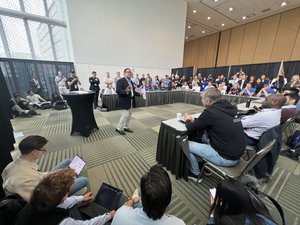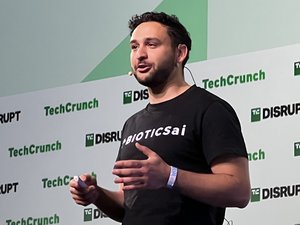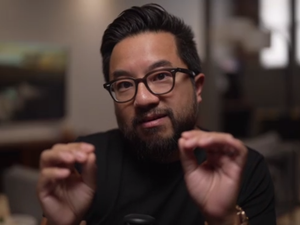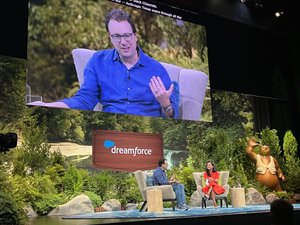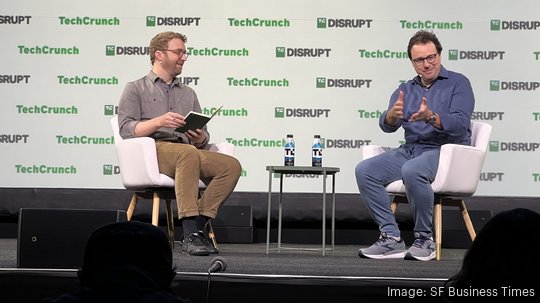
Anthropic CEO Dario Amodei doesn't like the term "artificial general intelligence," a concept that's central to rival OpenAI's stated mission.
"I don't like the term," Amodei said Wednesday during TechCrunch Disrupt in San Francisco. "That term was more useful 10 years ago than it is now even though we're kind of closer to some of the things that it's alluding to."
Artificial general intelligence, or AGI, is often used to describe an advanced state of AI where the models become smarter than human intelligence.
The problem with the discourse around AGI is that it conflates different concepts, Amodei said.
"People are mushing together things that are very practical with things that are that are very speculative. Not that we might not get from one to the other and in a relatively short period of time, but I think we're on much more solid ground talking about when our model is going to be able to do most things that humans can do versus the societal implications of that or where that might lead us technologically," Amodei said. "Both are called AGI, and I think it's kind of not a very useful discourse."
Amodei joined OpenAI, the developer of ChatGPT, as a lead safety researcher in 2016, shortly after the organization launched, and remained there for nearly five years, ascending to the role of vice president of research. By late 2020 he left OpenAI, and in early 2021, co-founded Anthropic with his sister, Daniela Amodei, and several other former OpenAI employees.
Anthropic has raised $1.5 billion since then, Amodei confirmed Wednesday.
The company had raised at least $1.3 billion as of March, making it one of the most well-funded generative AI startups in the Bay Area. In August, Anthropic raised an additional $100 million from SK Telecom.
Amodei also made an appearance on Thursday at Salesforce's annual Dreamforce conference in San Francisco where he talked about how generative AI models are "inherently unpredictable."
Here are six other notable statements Amodei made during TechCrunch Disrupt on Wednesday.
Are there limits to the potential scalability and efficiency of transformer models, the technology currently underpinning most generative AI development? "You could never quite be sure. We could invent something that works better, more efficient than the transformer. If that happens, I think that'll make the curve steeper and they can go on for longer … Even if we don't, I think scaling could go on for at least about four years."
How should Congress think about potential regulations for AI? It's like thinking about how to regulate cars and airplanes, Amodei said. "These are machines that are capable of wonderful things, really useful to humanity, but also dangerous. They can help people and so they have to be tested properly before they're released."
Is the fox guarding the AI henhouse? "People building the technology are usually the most knowledgeable about the technology, but may or may not have the right incentives. We at least try to give advice against the catastrophic risks without doing the things which can protect incumbents if they're not done the right way. But ultimately, the government should make their own decisions. They should use all a wide set of people. They shouldn't just listen to large industrial players or even startups."
Who are Anthropic's users doing with Claude, the company's chatbot? "Our sweet spot so far has often been knowledge work and professional services," Amodei said, such as contracts, financial services, accounting and productivity.
Are investors pushing for timely return on their investment? "I think everyone is aware that language models are costing more and more but also generating more and more revenue. So everyone kind of understands that there's a lot of potential for the field in the future."
How did Sam Bankman-Fried fit into Anthropic's circle of investors? The disgraced former FTX CEO led Anthropic's $580 million Series B round in early 2022, before his cryptocurrency exchange collapsed. "When Sam (Bankman-Fried) invested in our Series B, we were unaware" of what was going on behind the scenes, Amodei said. "He represented himself as someone who cared a lot about AI safety and made big bets. Obviously, he was different than what he represented … Those shares were non-voting shares and now they're being sold by the bankruptcy estate. So, that's pretty much all there is to say about it."
